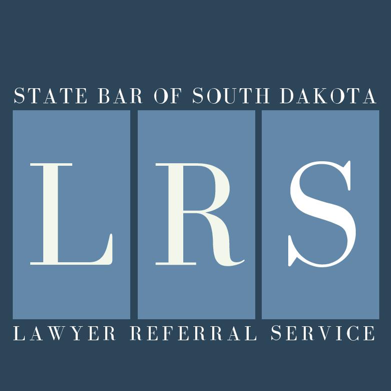In this country the right to own property is a privilege we all enjoy. At death, the owner of the property, by use of a properly drawn and executed will, has the right to transfer such property to persons of their choice. (Property can either be real, such as a home, or personal, such as a boat or an automobile.)
A person who dies and has a will is said to have died testate. A person who dies without a will is said to have died intestate.
When a person dies without a will, the court appoints a personal representative to administer the estate and to distribute the property, as provided by law. A bond may be required of a personal representative.
A person who dies with a will usually appoints a personal representative of their choice to administer their estate and to distribute their property as directed by the terms of their will. A person who leaves the will usually waives the bond requirement for the personal representative.
A will does not take effect until a person dies. As long as a person is competent, a person may change their will as many times as they desire during their lifetime. A will may be changed or amended by using what is called a codicil.
In South Dakota, every person over the age of eighteen (18) years, who is of sound mind, may execute a will. The will should be in writing, signed by the testator in the presence of two (2) witnesses. The two (2) witnesses must write their names on the will.
Uniform Probate Code
Effective July 1, 1995, South Dakota adopted Articles I, II, III, IV and VIII of the Uniform Probate Code. The purpose of the Uniform Probate Code is to:
- Simplify and clarify the law concerning the affairs of decedent;
- Discover and make effective the intent of a decedent as to distribution of his property;
- Promote a speedy and efficient system for liquidating the estate of the decedent and making distribution to the heirs; and
- Make uniform the law among various jurisdictions.Why do we have probate?
Any person who dies owning property must take provision for the distribution of those assets. In many instances this is done by a probate proceeding. If there is a will devising the property, there will be a testate proceeding. When there is no will, there will be an intestate probate proceeding. These proceedings are generally in the county where the deceased lived at the time of death. Probate proceedings are usually administered under the supervision of the Clerk of Courts. Persons entitled to share in the distribution of an estate are determined from the provisions of the will, or if there is no will, by the rules of intestate succession.
Probate laws are designed to protect the rights of heirs and creditors and to assure the orderly collection, preservation, and transfer of property. The probate court also provides for the collection of appropriate state estate, federal estate, income, real property, sales and use taxes before the estate may be closed.
Rights of creditors
A creditor of the decedent must be paid from the assets of the estate before there is any distribution of the estate property to the heirs and beneficiaries. Determination of valid debts and payment of those debts is usually done during the probate proceedings. If there is money owed to the estate, these funds are usually collected during the probate proceedings.
Establishing property title
If a decedent dies owning title to property in the decedent's own name, it is during the probate proceedings that title to these assets would be given to the beneficiaries and heirs. There can be no transfer of property in a probate proceeding until provisions have been made to pay any state or federal death taxes which may be due. When all debts and taxes have been paid, the property would be distributed to the heirs and the probate proceedings would be closed.
Rights of the surviving spouse
Protecting the rights of the surviving spouse and minor children is another responsibility of the probate court.
A common misconception concerning our laws is the idea that when a person dies without a will, the property passes directly to the surviving spouse. This is not the case.
In South Dakota, when a person dies without leaving a will, the surviving spouse is entitled to receive the entire intestate estate unless the decedent was survived by descendants of a prior marriage or other relationship, in which event, the spouse receives $100,000.00 plus half of the remaining estate, plus certain exempt property, family allowances, and homestead allowances. The exempt property is that which the spouse and unmarried minor children are entitled to receive absolutely, regardless of provisions made by the spouse for disposition of the other assets.
This exempt property includes such items as the family Bible, books (with a $200.00 value limitation), clothing, and fuel for one year. The family allowance is an award made to the surviving spouse and the minor children to live on during the administration of the estate. The amount of the award is based on the family's previous standard of living.
In addition, depending on the provisions in the decedent's will for the surviving spouse, the surviving spouse may exercise an option to take an elective share in lieu of the provision made in the will. The amount of the elective share is determined by the length of time the spouse and the decedent were married to each other.
It is no longer possible to disinherit a spouse in the state of South Dakota, unless the spouse agrees.
Expenses of probate
The administration of any estate generally involves the following expenses:
- Bond Premiums. Each personal representative is required to provide the court with an indemnity bond guaranteeing the faithful performance of duties unless bond is specifically waived by the decedent in his will or, in certain cases, by the court.
- Published Notices. Notices may be published during the administration of an estate. These notices are for the protection of those interested in the estate and vary in cost.
- Court costs. Court costs paid to the Clerk are in an amount set by law.
- Personal Representative and Attorney Fees. The fee received by the personal representative is set by law. The attorney who assists in the administration of an estate is hired by the personal representative of the estate and those fees are a matter of contract. The personal representative is entitled to reimbursement from the estate for payment of attorney fees in handling the estate. If the personal representative is an attorney, he will receive only one fee.
Small Estates
If your estate does not exceed a certain value (currently $25,000.00) and consists solely of personal property, a probate proceeding may not be required and the estate can be transferred with an affidavit. Creditor claims must still be paid, however.
This information is based in South Dakota law and is designed to inform, not to advise. No person should ever apply or interpret any law without the aid of an attorney who knows the facts and may be aware of any changes in the law.

Get a consultation from a local, qualified lawyer.
Get started ⟶